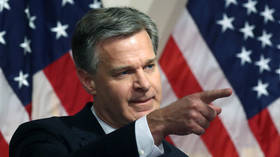U.S. financial crisis sends shockwaves globally
U.S.-based bank Lehman Brothers on Monday filed for bankruptcy after it failed to find a white knight to come to its rescue. Crushed under the weight of a $60 Billion debt, it lost over 70 percent of its value last week,
Russia's MICEX index fell more than 6 percent Monday on bad news from the US: A forced restructuring of the world's largest insurance company AIG, the Bank of America’s government-brokered takeover of Merrill Lynch and, finally, one of the oldest investment banks Lehman Brothers filing for bankruptcy.
Anton Tabakh, Senior Analyst at Troika Dialog says the news marks a tectonic shift in the worlds financial markets.
“Its absolutely uncharted territory. For the last 50 years the common approach was to avoid bankruptcy at all costs, so it will be something new, which markets fear. I think for the US financial markets todays events lead to more tectonic shifts than for example 9/11. Because again it is changing the structure of the industry.”
Five-year credit default swaps on Lehman Brothers climbed 116 basis points last week. That means the market is pricing Lehman as having a greater risk than VTB.
Could that attract investors to Russia’s second-largest bank? Anton Tabakh says, quite possibly.
“Those with strong fundamentals and backed by strong economic performance, will if not prosper immediately, but at least improve their status. In this sense Russian banks, which have almost no exposure to sub prime and have relatively strong balance sheets, are in good shape.”
Analysts say the latest events have changed the banking sector as we knew it. But Yaroslav Lissovolik, Chief Economist at Deutsche Bank, says the U.S. governments role in supporting the system is giving rise to questions of moral hazard.
“There is concern about excessive intervention of the state in resolving such crises, because one of the problems then is moral hazard. You provide too much support during such periods of difficulty and distress and then the expectation of this support further on will invite further intervention, and will invite irresponsible policies on the part of the economic agents.”
Lehman may not be the last of the world’s major financial institutions to collapse under the weight of its debt. Washington Mutual was named by several analysts as the next to face serious trouble. It was the subject of a rescue led by private equity firm Texas Pacific group in the spring. Others quote Bank of America as a possible victim, if investors consider Merrill Lynch a bad buy.












